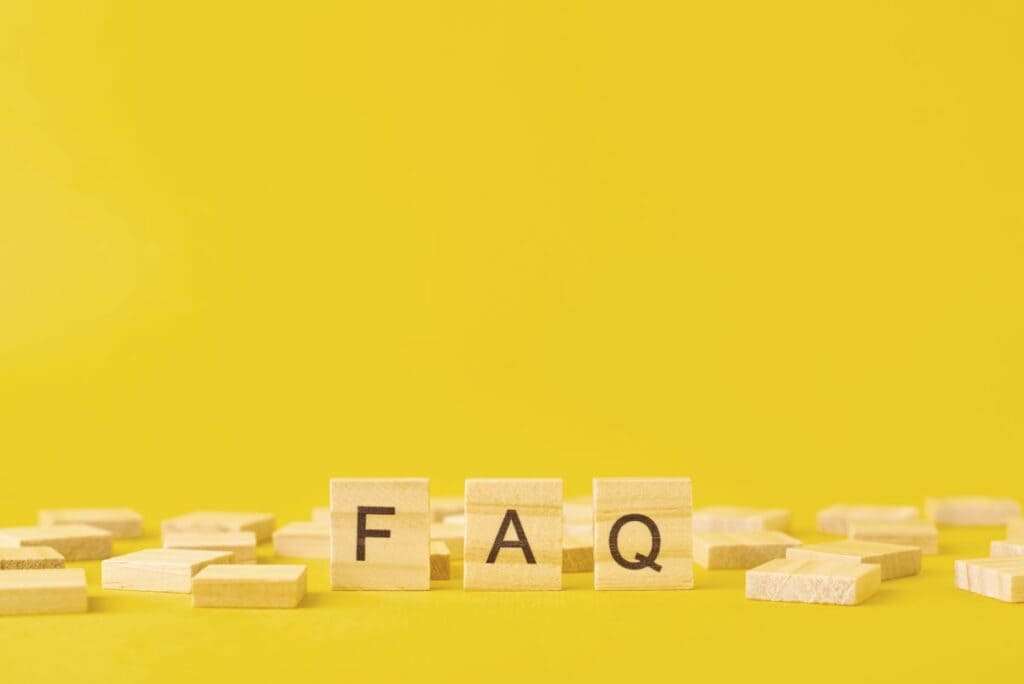Anger management is a crucial skill for teenagers navigating the complex transition into adulthood. As they experience a surge in emotional intensity, teens may find it challenging to control their responses to frustration and perceived injustices.
Managing anger effectively is critical for maintaining healthy relationships, both interpersonal and within the broader community.
Teaching adolescents the tools to regulate their emotions can lead to better behavior, improved mental health, and the ability to address anger issues proactively.
Teenagers often face pressure from various aspects of their lives, including academics, social dynamics, and family expectations.
This can result in an increased potential for conflicts that may trigger anger. Without proper management strategies, these emotional responses can escalate to destructive behavior.
However, with appropriate anger management techniques, teens learn to identify the triggers and signs of anger early, understand their underlying emotions, and express their feelings in a constructive manner that does not harm themselves or others.
Relationships are at the heart of adolescence, a time when peers and social networks hold significant influence. Anger that is not managed well can cause rifts within these relationships and potentially lead to isolation.
Therefore, equipping teens with anger management strategies is not only beneficial for immediate conflict resolution but also plays an essential role in their overall development and long-term mental health.
By fostering resilience and emotional intelligence, anger management programs support teenagers’ journey toward becoming well-adjusted adults.
Explore emotional well-being with BetterHelp – your partner in affordable online therapy. With 30,000+ licensed therapists and plans starting from only $65 per week, BetterHelp makes self-care accessible to all. Complete the questionnaire to match with the right therapist.
Understanding Anger in Teens

Adolescence is a critical period for emotional development, and it’s important for teens, parents, and educators to recognize the complexity of anger during this time.
Understanding the interplay between hormonal influences, anger triggers, and behavioral responses is essential for effective anger management.
Emotional Changes and Hormonal Influences
Teenagers experience a surge of hormonal changes that can contribute to increased emotional sensitivity and reactivity.
During puberty, the rise in hormones like estrogen and testosterone can intensify feelings, leading to bouts of irritability and quick shifts in mood.
This biological transition can make teens more prone to experiencing intense negative emotions, which requires supportive strategies for healthy regulation.
Recognizing Anger Triggers
Anger triggers in teens are often connected to environmental stressors such as academic pressure, social struggles, or family conflicts. Identifying what sparks anger is the first step toward managing it.
Whether it’s a perceived injustice or frustration over lack of control, these triggers can lead to anger that, if not recognized and addressed, can disrupt a teen’s emotional equilibrium.
Differentiating Anger from Aggression
It’s important to distinguish between anger—a natural, though sometimes overpowering, emotion—and aggression, which is an action taken in response to anger, potentially leading to harmful behavior.
Teens must learn that while feeling angry is okay, channeling that anger into aggression is neither acceptable nor constructive.
Instead, they should be guided toward positive expression and coping mechanisms to handle their negative emotions without resorting to aggression.
Anger Management Techniques and Skills

To effectively manage anger, teens can employ a range of techniques and skills that encompass communication strategies, relaxation methods, and structured therapeutic interventions.
Teens can also benefit from practical exercises such as worksheets and activities specifically designed for anger management.
Effective Communication Strategies
| Open Dialogues | Listening Skills |
|---|---|
| Teens can learn to express their feelings clearly and assertively, without aggression. | Active listening involves paying close attention, reflecting, and not interrupting. |
| Techniques such as “I” statements—articulating feelings by starting sentences with “I feel” to own emotions instead of blaming—can help. | This skill allows for understanding others’ perspectives and reduces conflict escalation. |
Relaxation and Mindfulness Practices
| Practice | Description |
|---|---|
| Diaphragmatic Breathing | Teens should breathe deeply from the abdomen to achieve calmness. |
| Counted Breaths | Instruct teens to count each exhale to slow down breathing and focus the mind. |
| Guided Imagery | Encouraging teens to envision a peaceful place can help them relax and detach from their immediate emotional response. |
Behavioral Therapy and Professional Help
If anger issues persist and become challenging to manage, seeking professional support is crucial. Consulting with a therapist or counselor allows for more personalized strategies tailored to the unique circumstances of the teenager.
These professionals can delve deeper into the underlying factors contributing to anger and work collaboratively with the teen to develop coping mechanisms and communication skills that lead to healthier emotional expression.
Cognitive Behavioral Therapy (CBT) emerges as a valuable tool for teenagers grappling with anger issues. This therapeutic approach empowers teens to identify and modify negative thought patterns that contribute to their anger.
Engaging in CBT sessions with a professional offers a structured and supportive environment for teens to explore the root causes of their anger and develop effective coping mechanisms, fostering positive behavioral changes.
Recognizing the need for support is a proactive step toward addressing anger issues and promoting the emotional well-being of teenagers.
Anger Management Worksheets for Teens

Anger management worksheets for teens can be valuable tools in helping adolescents understand, express, and cope with their anger in healthy ways.
Here are a few topics that can be covered in such worksheets:
| Topic | Description |
|---|---|
| Identifying Triggers | Worksheets can guide teens in identifying specific situations, events, or thoughts that trigger their anger. Understanding these triggers is a crucial step in developing effective anger management strategies. |
| Cognitive Restructuring | Teens can benefit from worksheets that introduce cognitive restructuring exercises. These may involve challenging and reframing negative thought patterns that contribute to anger, promoting more balanced and constructive thinking. |
| Expressing Anger Appropriately | Worksheets can provide scenarios or role-playing exercises to teach teens how to express anger in assertive and respectful ways. This includes using “I” statements and avoiding aggressive or passive-aggressive communication. |
| Developing Coping Strategies | Teens can explore and document various coping strategies to employ when they feel angry. This might include deep breathing exercises, taking a break, engaging in physical activity, or journaling. |
| Understanding Consequences | Worksheets can help teens recognize the potential consequences of uncontrolled anger, both for themselves and those around them. This understanding encourages accountability and motivates positive behavior change. |
| Creating a Personalized Plan | Teens can work on creating a personalized anger management plan. This plan may include their identified triggers, chosen coping strategies, and a commitment to seeking support when needed. |
| Reflecting on Progress | Regular self-reflection is important. Worksheets can include sections for teens to track their progress, noting instances when they successfully managed their anger and areas where improvement is needed. |
These worksheets serve as practical tools to enhance self-awareness and equip teens with the skills needed to navigate and manage their emotions effectively.
Confronting Underlying Issues
Effective anger management for teens frequently involves addressing the root causes of their anger.
These root issues often stem from emotional struggles, such as anxiety and depression, or broader mental health challenges.
Dealing with Anxiety and Depression
Anxiety and depression are common triggers for anger in adolescents. Anxiety can manifest as persistent worry and tension, leading to frustration and irritability.
Depression, characterized by persistent sadness and loss of interest, can make teens feel overwhelmed, which may result in aggressive behavior.
Anger management programs must recognize the symptoms of these conditions and provide strategies for managing them, such as developing healthy coping mechanisms and encouraging open communication.
Addressing Mental Health Issues

Mental health issues go beyond anxiety and depression, encompassing a range of disorders that can influence a teenager’s ability to regulate emotions.
Recognizing and treating these conditions early is essential for preventing the escalation of anger episodes.
Therapy sessions, both individual and group, along with appropriate medication where necessary, can be highly effective.
Programs that include animals in therapy or use a computer-based self-help format have shown promise in facilitating anger management by providing alternative outlets for stress and encouraging positive activity interventions.
Integrating these elements into a teen’s anger management plan can lead to more successful outcomes.
Prevention and Intervention Strategies
Effective management of anger in adolescents hinges on the early identification of triggers and the creation of nurturing environments.
Consistency in approach and access to resources within the community are pivotal.
Identifying Early Warning Signs
Triggers often precede episodes of anger and aggression in youth. These can manifest as changes in behavior or emotional state.
Patterns of such triggers may include specific interactions, situations, or stressors that consistently elicit an angry response.
Professionals and caregivers should be attentive to changes in communication, an increase in irritability, or withdrawal as indicators of burgeoning anger issues. It is critical to recognize these early signs to intervene before escalation.
Therapists Specializing in Anger Management
Creating Supportive Environments
Adolescents thrive in supportive communities that foster understanding and provide adequate resources for managing emotions.
Schools and families can create preventative environments by integrating coping strategies into everyday routines and incorporating structured group activities that promote emotional intelligence.
Frequently Asked Questions

What techniques can help a teenager manage their anger effectively?
Teenagers can benefit from a variety of techniques to manage their anger, such as practicing deep breathing exercises, engaging in physical activities, or expressing themselves through art or writing.
Strategies like cognitive restructuring help in replacing negative thoughts with more balanced ones, contributing to emotional regulation.
How can one find local programs specializing in anger management for adolescents?
Local programs specializing in anger management can often be discovered through educational institutions or healthcare providers.
Which exercises are recommended for teenagers to cope with anger?
Exercises such as practicing mindfulness, meditation, and progressive muscle relaxation are recommended to help teenagers cope with anger.
Additionally, physical activities such as sports or even simple aerobic exercises like walking or jogging can act as natural mood regulators.
What are some signs that a teenager may be struggling with uncontrolled anger?
Some signs indicating that a teenager may struggle with uncontrolled anger include frequent arguments, physical fights, deliberate property destruction, or verbal outbursts.
These behaviors can suggest a need for anger management support to develop more effective coping mechanisms.
What approaches can parents take when dealing with a teenager’s anger directed toward family members?
Parents can adopt approaches that include active listening, setting clear and consistent boundaries, and modeling calm behavior.
Engaging the teenager in constructive conversations about emotions and maintaining a supportive environment are crucial for managing anger that is directed toward family members.








